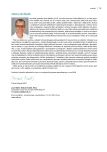-
Medical journals
- Career
Notes on the new “Recommendations for the treatment of dyslipidemia. Influencing of lipids to reduce cardiovascular risk”
Authors: Richard Češka
Authors‘ workplace: Centrum preventivní kardiologie III. interní kliniky 1. LF UK a VFN v Praze
Published in: Vnitř Lék 2019; 65(12): 755-760
Category: Guidelines
Overview
New guidelines on dyslipidemia (DLP) related problems appear earlier than planned. Primarily in view of the results of science and large clinical studies, but also with regard to the advent of biological therapy (PCSK9-i) in many European countries. Also, the “conventional” hypolipidemic therapy is generified and therefore cheaper, more affordable. The recommendations are based, as the preceding ones, on the principle of estimating the overall cardiovascular risk. The innovated SCORE tables are used for this, but more emphasis is placed on non-invasive diagnostics using imaging methods, be it carotid ultrasound or, in particular, non-contrast CT coronarography. Perhaps the most significant outcome is the reduction of LDL-cholesterol (LDL-C) target values to 1.4 mmol/l and a 50% reduction of baseline LDL-C in patients belonging to the highest risk groups, and in secondary prevention. Moreover, in the case of “extreme” risk the goal is to reduce LDL-C below 1 mmol/l. Essential to DLP therapy is statin treatment. Especially in patients with acute coronary syndrome and those in the highest risk categories, the maximum tolerated doses of statin should be used, if necessary in combination with ezetimibe. Where this maximum “routine” treatment is insufficient to achieve the target values, PCSK9-i therapy is indicated. However the recommendations do not by any means omit non-pharmacological therapy, quite the opposite, it is always emphasized as the first step of DLP therapy. Worthy of notice is the introduction of the term “atherosclerotic cardiovascular disease” – ASCVD, which replaces the older and less accurate CVD.
Keywords:
ASCVD – dyslipidemia – ezetimibe – global CV risk – PCSK9-i – statins
Sources
- Mach F, Baigent C, Catapano AL et al. [ESC Scientific Document Group]. 2019 ESC/EAS Guidelines for the management of dyslipidaemias: lipid modification to reduce cardiovascular risk. Eur Heart J 2019. pii: ehz455. Dostupné z DOI: <http://dx.doi.org/10.1093/eurheartj/ehz455>. Erratum in: Eur Heart J 2019. pii: ehz826. Dostupné z DOI: <https://doi.org/10.1093/eurheartj/ehz826>.
- Catapano AL, Graham I, De Backer G et al. [ESC Scientific Document Group]. 2016 ESC/EAS Guidelines for the management of dyslipidaemias. Eur Heart J 2016; 37(39): 2999–3058. Dostupné z DOI: <http://dx.doi.org/10.1093/eurheartj/ehw272>.
- Ference BA, Ginsberg HN, Graham I et al. Low-density lipoproteins cause atherosclerotic cardiovascular disease. 1. Evidence from genetic, epidemiologic, and clinical studies. A consensus statement from the European Atherosclerosis Society Consensus Panel. Eur Heart J 2017; 38(32): 2459–2472. Dostupné z DOI: <http://dx.doi.org/10.1093/eurheartj/ehx144>.
- [Cholesterol Treatment Trialists’ (CTT) Collaboration]. Efficacy and safety of more intensive lowering of LDL cholesterol: a meta-analysis of data from 170,000 participants in 26 randomised trials. Lancet 2010; 376(9753):1670–1681. Dostupné z DOI: <http://doi: 10.1016/S0140–6736(10)61350–5>.
- Cannon CP, Blazing MA, Giugliano RP et al. [IMPROVE-IT Investigators]. Ezetimibe Added to Statin Therapy after Acute Coronary Syndromes. N Engl J Med 2015; 372(25): 2387–2397. Dostupné z DOI: <http://doi: 10.1056/NEJMoa1410489>.
- Sabatine MS, Giugliano RP, Keech AC et al. [FOURIER Steering Committee and Investigators]. Evolocumab and Clinical Outcomes in Patients with Cardiovascular Disease. N Engl J Med 2017; 376(18): 1713–1722. Dostupné z DOI: <http://doi: 10.1056/NEJMoa1615664>.
- Schwartz GG, Steg PG, Szarek M et al. [ODYSSEY OUTCOMES Committees and Investigators]. Alirocumab and Cardiovascular Outcomes after Acute Coronary Syndrome. N Engl J Med 2018; 379 : 2097–2107. Dostupné z DOI: <http://doi: 10.1056/NEJMoa1801174>.
Labels
Diabetology Endocrinology Internal medicine
Article was published inInternal Medicine

2019 Issue 12-
All articles in this issue
- Notes on the new “Recommendations for the treatment of dyslipidemia. Influencing of lipids to reduce cardiovascular risk”
- Hyperlipidemia management in Slovakia: observational study
- Vascular age
- Atherosclerosis in patients with type 1 diabetes
- Hypertriglyceridemia and atherosclerosis risk
- Extermination of atherosclerosis not only in lower extremities
- Atherosclerosis and beta-blockade: A forgotten option?
- Pharmacologically induced thyreopathy in patients with cardiovascular disease
- Importance of fixed-dose combinations in cardiovascular prevention: the possibility of treating two diagnoses with a single pill
- Úvodník
- Stanovisko výboru České společnosti pro aterosklerózu k doporučením ESC/EAS pro diagnostiku a léčbu dyslipidemií z roku 2019
- Ľubomíra Fábryová, Pavol Holéczy a kolektív. Diabezita. Diabetes a obezita: nerozlučné dvojičky
- Internal Medicine
- Journal archive
- Current issue
- Online only
- About the journal
Most read in this issue- Pharmacologically induced thyreopathy in patients with cardiovascular disease
- Vascular age
- Hypertriglyceridemia and atherosclerosis risk
- Notes on the new “Recommendations for the treatment of dyslipidemia. Influencing of lipids to reduce cardiovascular risk”
Login#ADS_BOTTOM_SCRIPTS#Forgotten passwordEnter the email address that you registered with. We will send you instructions on how to set a new password.
- Career

